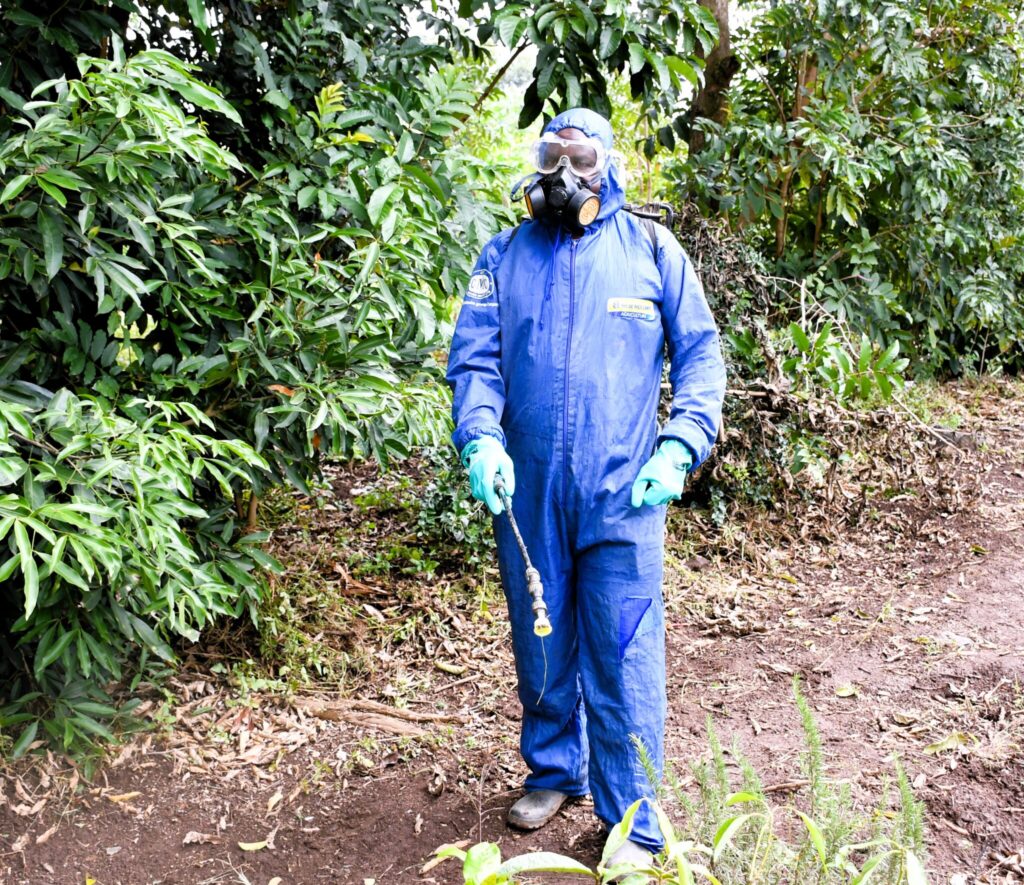Many Kenyan smallholder farmers still misuse pest control products despite years of training, regulation and awareness campaigns. aak-GROW has launched “Stewardship Mashinani,” a grassroots behaviour‑change pilot in Nakuru County to close the gap between knowledge and day‑to‑day practice in pesticide handling, application and disposal.
Nakuru was selected for its strong agricultural base, governance structures and commitment to food safety. With well over two thirds of residents engaged in farming and a recent contribution exceeding 5.2% of Kenya’s GDP, the county offers a high‑impact test bed for scalable stewardship.
The model embeds repeated safety messages within trusted local networks. Community Health Promoters (CHPs) trained by aak-GROW and the Ministry of Health are conducting household visits across seven sub‑counties, coaching families on safe purchase, transport and storage; correct use of personal protective equipment (PPE); first‑aid steps; and how to access the toll‑free poison information line supported through Kenyatta National Hospital. More than 5,000 households have already been sensitized.
County agricultural officers in all 11 sub‑counties now weave pesticide safety into public barazas—long‑standing community forums—broadening reach and reinforcing consistent messages. Early engagement has led to four pesticide container collection points in Molo and Rongai, where farmers drop empties into large “big bags” for safe recovery and disposal.
Partnership with Egerton University is bringing stewardship into nine schools in Njoro sub‑county via the 4K Club model. Trained teachers are using tailored materials and planning field days so students can demonstrate safe practices at home, turning children into behaviour change multipliers. Agro dealers, cooperatives, and women’s and youth groups further amplify the effort across formal and informal farmer networks.
Critically, the pilot draws on behavioural insight: information alone rarely shifts entrenched habits. Farmers may skip PPE because of heat or cost, decant products into unlabelled containers, or repurpose empties for household use. Mashinani responds by normalizing safer routines in real community settings and aligning on‑farm practice with recovery systems consistent with Pest Control Products Board (PCPB) regulations.
Later this year the Nakuru pilot will be evaluated to track adoption, barriers and measurable behaviour shifts. Findings will guide expansion to other agriculture‑intensive counties. Because stewardship spans the full pesticide lifecycle from manufacturing and distribution to on‑farm use and container disposal the Mashinani approach aims to build durable, community‑owned systems that protect health, the environment and farmer livelihoods while supporting safer food supply chains nationally.

